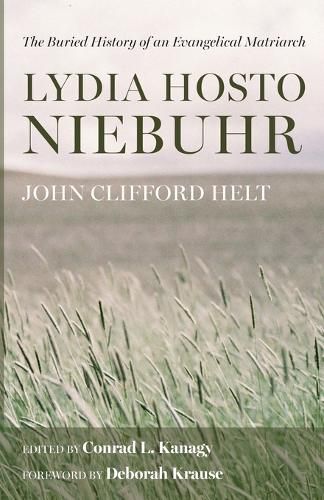Readings Newsletter
Become a Readings Member to make your shopping experience even easier.
Sign in or sign up for free!
You’re not far away from qualifying for FREE standard shipping within Australia
You’ve qualified for FREE standard shipping within Australia
The cart is loading…






This title is printed to order. This book may have been self-published. If so, we cannot guarantee the quality of the content. In the main most books will have gone through the editing process however some may not. We therefore suggest that you be aware of this before ordering this book. If in doubt check either the author or publisher’s details as we are unable to accept any returns unless they are faulty. Please contact us if you have any questions.
This biography is about an immigrant's daughter who remained in the shadows of her father, husband, sons, and daughter. But it is also about the theological tradition--German Evangelical Pietism--that shaped her and that she helped to shape. That tradition is also hidden--or buried--for its tendency to embarrass modern sensitivities. As such it remains deeply misunderstood. Grounded in the history of the Prussian Union and the pietism of the free mission houses of Germany, it is evangelical in a way that is unrecognizable and bears little resemblance to the evangelicalism of the twenty-first century. In its pietism, it exudes an irenic approach to theological and doctrinal differences, in a way that is altogether misunderstood. It is focused on peacemaking and deeds of loving and just action in the world, rather than theological precision. The sad history of this tradition is that like the story of Lydia--both have been buried in the religious landscape of twentieth-century American Protestantism. It is time that the story of Lydia Hosto Niebuhr be emancipated from a church history that has minimized the story of many of its most important giants simply because they were born at a time when their stories were less valued than the men they supported and the sons they birthed and nurtured in the church. The biography of Lydia Hosto Niebuhr corrects and recalls what has been buried and hidden, and in doing so offers an alternative to the polarization of the political and religious fields of the United States.
$9.00 standard shipping within Australia
FREE standard shipping within Australia for orders over $100.00
Express & International shipping calculated at checkout
This title is printed to order. This book may have been self-published. If so, we cannot guarantee the quality of the content. In the main most books will have gone through the editing process however some may not. We therefore suggest that you be aware of this before ordering this book. If in doubt check either the author or publisher’s details as we are unable to accept any returns unless they are faulty. Please contact us if you have any questions.
This biography is about an immigrant's daughter who remained in the shadows of her father, husband, sons, and daughter. But it is also about the theological tradition--German Evangelical Pietism--that shaped her and that she helped to shape. That tradition is also hidden--or buried--for its tendency to embarrass modern sensitivities. As such it remains deeply misunderstood. Grounded in the history of the Prussian Union and the pietism of the free mission houses of Germany, it is evangelical in a way that is unrecognizable and bears little resemblance to the evangelicalism of the twenty-first century. In its pietism, it exudes an irenic approach to theological and doctrinal differences, in a way that is altogether misunderstood. It is focused on peacemaking and deeds of loving and just action in the world, rather than theological precision. The sad history of this tradition is that like the story of Lydia--both have been buried in the religious landscape of twentieth-century American Protestantism. It is time that the story of Lydia Hosto Niebuhr be emancipated from a church history that has minimized the story of many of its most important giants simply because they were born at a time when their stories were less valued than the men they supported and the sons they birthed and nurtured in the church. The biography of Lydia Hosto Niebuhr corrects and recalls what has been buried and hidden, and in doing so offers an alternative to the polarization of the political and religious fields of the United States.